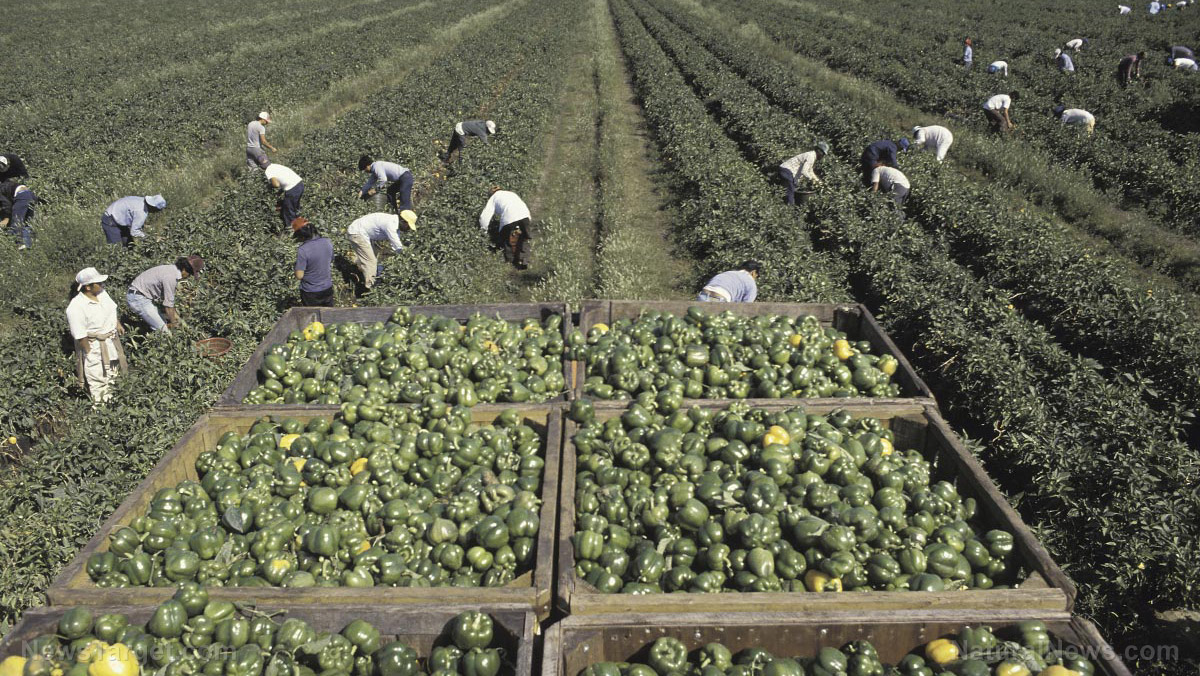E. coli in “organic” beef: The Whole Foods Market wake-up call people didn’t see coming
07/16/2025 / By Olivia Cook

- Whole Foods Markets ground beef alert – not a recall, but a public health warning – was issued for Organic Rancher brand ground beef sold in 27 states due to potential E. coli contamination.
- Affected packages are labeled “85 percent lean, 15 percent fat” with “use by” dates of June 19 and 20, 2025. Look for the USDA mark “EST: 4027.”
- Always cook ground beef to at least 160 degrees Fahrenheit and use a meat thermometer to be safe.
- While many strains are “harmless,” Shiga toxin-producing E. coli can cause severe illness, including kidney failure, especially in kids and seniors.
- Practice safe food handling, cook meats thoroughly, wash hands often and avoid raw milk, juices and undercooked or identified contaminated foods.
Whole Foods Market has long been viewed as a gold standard for health-conscious grocery shopping. What began as a single, small natural food store in Austin, Texas, has grown into a global retail leader, with over 500 stores across the U.S., the U.K. and Canada. Promising “natural, organic and responsibly sourced” products, Whole Foods Market isn’t just a supermarket but a symbol of trust and wellness.
That is why when news broke that Organic Rancher ground beef sold at Whole Foods Market tested positive for E. coli, it wasn’t just alarming. It was a wake-up call.
In June, the U.S. Department of Agriculture‘s Food Safety and Inspection Service (USDA FSIS) issued a public health alert – not a formal recall – after routine testing found E. coli contamination in Organic Rancher brand ground beef. Affected packages are labeled “85 percent lean, 15 percent fat” with “use by” dates of June 19 and 20, 2025. Look for the USDA mark “EST: 4027.”
To grasp the scale of potential E. coli exposure, the product had already reached over 350 Whole Foods Market retail stores in 27 states: Alabama (2), Connecticut (11), Florida (33), Georgia (12), Iowa (1), Illinois (26), Indiana (5), Kentucky (2), Massachusetts (32), Maryland (11), Maine (1), Michigan (8), Minnesota (7), Missouri (4), Mississippi (1), North Carolina (16), New Hampshire (3), New Jersey (24), New York (31), Ohio (11), Pennsylvania (15), Rhode Island (3), South Carolina (5), Tennessee (8), Texas (35), Virginia (15), Wisconsin (3) and the District of Columbia (8).
E. coli (short for Escherichia coli) is a type of bacteria that is found in the intestines of both humans and animals. Most strains are harmless, and some even help with digestion and vitamin production. But certain strains like the Shiga toxin-producing E. coli are known to be dangerous and can cause serious illness.
According to experts at the University of California-Davis Health (UC Davis Health), these harmful strains can lead to a wide range of health problems, including: digestive distress like stomach cramps, nausea, vomiting and diarrhea that can range from mild to bloody; urinary tract infections (UTIs), especially common in women; hemolytic uremic syndrome (HUS), a rare but life-threatening condition that may cause symptoms like confusion, decreased urination, fatigue, increased heart rate, kidney failure and/or seizures; and other complications like bacteremia (bloodstream infections), lung infections or long-term kidney damage.
Most people recover within a week, but those in vulnerable groups may suffer lasting or life-threatening effects.
Ground beef is particularly risky when it comes to E. coli because the grinding process can mix bacteria from the surface into the interior of the meat. That means that even if it the outside appears cooked, harmful microbes could still survive inside. The USDA emphasizes one key point: Use a food thermometer. Ground beef must be cooked to an internal temperature of 160 degrees Fahrenheit.
“Organic” labels don’t change that. Bacteria don’t care how “clean” or “natural” your food is. Even premium brands like Organic Rancher can face breakdowns in safety.
Everyday ways to outsmart E. coli at home
Food safety is ultimately a shared responsibility. Here’s how to keep your kitchen – and your family – safe:
- Cook meat thoroughly. Always use a meat thermometer. Ground beef should reach 160 degrees Fahrenheit. Do not rely on color or texture alone.
- Wash produce well. Rinse all fruits and vegetables thoroughly. Scrub firm-skinned items and handle leafy greens with care before eating.
- Practice smart hand hygiene. Wash hands thoroughly with soap and warm water: after using the bathroom; after touching and cleaning pets; before and after preparing food, especially raw meat; and after eating.
- Sanitize surfaces regularly. Use separate cutting boards for meats and fresh produce. Wash knives, utensils and countertops with hot, soapy water.
- Say “no” to splash zones. Never wash or rinse raw meat in the sink. Droplets and splashes can spread bacteria and cross-contaminate your kitchen faster than you think.
- Skip raw dough and batter. Raw flour and eggs may carry E. coli or Salmonella. Resist the temptation to lick the spoon.
- Teach safe food habits. Educate everyone at home about basic food safety and hygiene. These simple habits make a big difference.
Whole Foods Market isn’t just a retailer – it is a lifestyle for many health-conscious consumers. That is why this public health alert stings. It reminds people that even the most trusted food systems can fail and even “natural,” “organic” supply chains aren’t immune to contamination.
This is about realistic vigilance. “Clean” marketing doesn’t guarantee clean, safe food. But empowered consumers, armed with knowledge and science-based habits, can protect their health, even when the system slips up.
Watch this video to learn why certain E. coli bacteria are so bad.
This video is from the Daily Videos channel on Brighteon.com.
More related stories:
Don’t make yourself ill with E. coli – safety precautions to guard against contamination.
Interview with Terry McBride, E. coli survivor and author of “The Hell I Can’t.”
Sources include:
Submit a correction >>
Tagged Under:
clean food watch, digestion issues, E. coli, food contamination, food safety, food supply, frankenfood, grocery, ground beef, infections, kidney failure, organics, products, seizures, stop eating poison, USDA, Whole Foods Market
This article may contain statements that reflect the opinion of the author
RECENT NEWS & ARTICLES
COPYRIGHT © 2017 FOOD SUPPLY NEWS




















